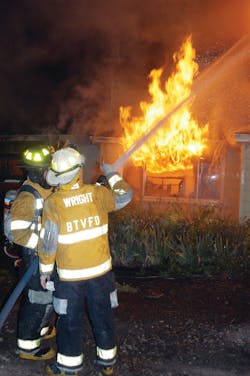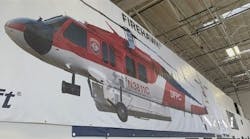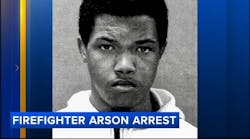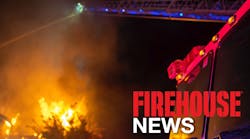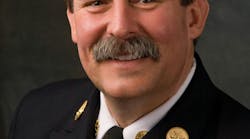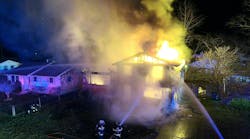According to the U.S. Fire Administration (USFA), around 87% of fire and EMS departments in the U.S. use volunteers in some way to respond to emergencies. Having the ability to recruit these folks is critical, and ensuring that your volunteer department is recruiting in the best way possible can have a major impact on the success of your personnel.
Below are some best practices and interesting facts from research on recruiting:
• Younger people tend to have shorter tenure with volunteer organizations
• Organizations with additional budgets and support for their volunteers tend to have fewer problems recruiting volunteers
Research also shows that organizations that use a higher amount of recruitment techniques tend to have a harder time recruiting volunteers. While this is evident in the research, the correlation here is likely to be one of inverse causation. It could be that organizations that have trouble recruiting volunteers end up using many tactics, while organizations that easily recruit end up not doing this. A likely solution to this issue is to study which of your past techniques has been successful. Where did your current good and long-tenured volunteers come from? Did they see an ad, hear about it through a friend or just walk in one day?
Find out why the people who have been there for a while and are successful came to be a part of the department. Not every department is attractive for the same reasons and not every reason stays around forever.
One of the most advanced ways to determine how best to recruit is to study how successful your recruiting efforts have been in the past. This can be accomplished by interviewing your current members. If you are able to identify trends from where many of the successful volunteers came from, it may drive your decision to invest more time and energy into that type of recruiting.
A common and well-supported method of recruitment is word of mouth. Encourage current successful volunteers to make their friends and family aware of the department’s need for more people. Research has found that this is often a successful method because friends of volunteers often get a good picture of what it is like to do the job, and are often similar in interests and desires as their friends, which makes it likely that they too would be a good fit in the department.
What difference would this make? What does this mean for your department? Good practices and using research to create effective strategies to recruit and retain volunteers are critical. A recent study we conducted showed that turnover was reduced by three times in one year when best practices were used. Imagine your department has about 50 volunteers total, and nine leave every year. That requires a lot of new training and we all know that it takes a while for someone to be trained in order to be helpful on scene. In our research we saw that number of nine leaving every year drops to three a year with only a few small changes.
How can we do this?
A great source here is to consider applying to a Staffing for Adequate Fire and Emergency Response (SAFER) grant, which can pay for the recruiting efforts. So far in 2014, some 66 departments have been awarded these grants, with an average amount of more than $320,000. That is quite a chunk of change that could certainly help in the recruitment of some good volunteers.
Collin Hawkes
Townsend and Rush Consulting
Roanoke, VA
The writer is an organizational development consultant for Townsend and Rush Consulting, which provides human resources and organizational development services to fire and EMS departments and other clients. He has been an active firefighter since the age of 18 and is certified as a Firefighter I and II. He holds a master’s degree in industrial and organizational psychology from Radford University and a bachelor’s degree in psychology from Appalachian State University.
Inspirational and motivational leadership
True leadership – that is, trusted, respected, valued and mentored leadership – can only be derived when tacit abilities are balanced with inspiration and motivation. One need only look to the past to see the validity in this statement. Consider Presidents Abraham Lincoln, Theodore Roosevelt and Ronald Reagan and General George S. Patton. True leaders do not find a need to impress, imply or otherwise expect this moniker. Moreover, they have no need to flex their position by exampling their power with malevolence because of entitlement. In fact, to the contrary, inspiration and motivation in many cases are derived from empowerment, communication, collaboration and the results thereof driven by one’s subordinates. It was Patton who said, “If you tell people where to go, but not how to get there, you’ll be amazed at the results.”
“The best leader is the one who has sense enough to pick good men to do what he wants done, and self restraint enough to keep from meddling with them while they do it.” —President Theodore Roosevelt
A fire officer’s ability to inspire and motivate people is complicated, and is developed and dependent on what personal style or amalgamated styles a person adopts or otherwise creates. Those traits less desired are physical, fearsome, terroristic, hyperbolic, fanaticism and perhaps even competing. The fire officer needs to be able to relate to individuals as well as large groups. Maintain a decent sense of humor while finding common ground and above all else be you. As a fire officer you will know and feel your limitations in this respect. Interpretation and the ability to adjust in a hostile environment in order to maintain mutual understanding are key. Development of your style is critical. Even so, there are some bread-and-butter commonalities that will help in the developing the ability to motivate and inspire.
First and foremost, respect for each individual is essential. Holding contempt or treating subordinates with contempt is going to subjugate any future professional development or relationship. This does go both ways. Respect is not gained by being buddies, pals or otherwise and will often be defeating when trying to motivate and inspire a group. This can only be gained for the fire officer by knowing your job; demonstrating you have the courage to do what’s right, identifying a situation when the betterment of your subordinates is in the lurch and by standing up for their welfare often taking the bullets and keeping them unscathed.
Your subordinates want to work for a winner who is willing to sacrifice for their well-being. Developing high, but attainable standards and personally maintaining those standards as the example is also contagious without the constant necessity to reinforce and shows you care for the organization and your people.
Leadership is getting people to accomplish a mission regardless of the circumstances because they see what you see. They can identify with the means. More importantly, they do so because they want to not just because they have to…that is inspiration and motivation. Yet still this is a constant maintenance requirement.
Developing the ability to be inspirational and motivating requires continuous questioning, occasional redirection and constant assessment. Are your people performing safely and acting in a safe environment? Are their basic needs being met (tailored to the individual and group)? Are they mentally well balanced? Are your senior people looking out for the younger members? Now it is the time to ensure good training programs, station routines and tasks are in place to develop self-discipline eliciting reward and accolades. A “Good Job!”, a pat on the back or a handshake demonstrating your recognition will fire them up or keep the fires burning and go a long way toward maintaining self-respect, discipline and esteem; all very crucial to a great organization and critical to inspirational and motivational leadership.
For your subordinates, inspiration and motivation are found in their teachers, parents and confidants. You must become all of these. It’s not just enough to stand there and show them; you have to be them. Show a personal interest, maintain personal integrity, work at planning and getting the job done and be the example. This will define, inspire and motivate your subordinates to the degree they will want to serve the organization.
Inspirational and motivational leadership is contagious. Maintaining a “teamwork”- and family-oriented foundation to the organization is going help spread the influence of these critical leadership traits to the group and to the individual. Once you give them a sense of belonging to something bigger than themselves, you develop self worth.
President Abraham Lincoln posited in a letter to Dr. Theodore Canisius that “Understanding the spirit of our institutions to aim the elevation of men, I am opposed to whatever degrades them.” This emphasized his belief that true inspirational and motivational leadership came from a willingness to be open, a commitment to empowerment and a dedication to coaching.
“The greatest leader is not necessarily the one who does the greatest things. He is the one that gets the people to do the greatest things.” —President Ronald Reagan
Just as leaders can inspire and motivate, so too can they discourage, dissuade and depress. Obviously, one would hope that’s not any fire officer’s goal,. A fire officer will never truly excel in a leadership role without realizing that inspiration and motivation are derived from, in many cases, empowerment, communication, collaboration and the results thereof driven by one’s subordinates.
It will always be your people who make or break your leadership ability. Maintain a sense of self while being selfless. While you’re listening, take time to hear. Let your people reap the rewards and receive the gratification of a job well done. Without them, there is no you.
Jamie M. Mitchell
Brunswick, ME
The writer is a 17-year veteran of the fire service. He is a former career lieutenant with the Brunswick, ME, Fire Department in Maine and a U.S. Navy officer. He holds a bachelor of science degree in business studies with a concentration in organizational leadership.
Just because we do it doesn’t make it right
In Harvey Eisner’s “Highs & Lows” commentary from the June 2014 issue’s “As Firehouse® Sees It,” he comments on a food shopping trip by an engine company in Arizona where a citizen complained about a newspaper photo showing a fire engine that fell into a sink hole while firefighters were shopping. Chief Eisner states, “Obviously, the reader is unaware that fire companies do this so that they can respond instantly to emergency calls that may come while they are preparing or eating their meals.”
I accept that paid departments across this country probably do just as the Arizona engine company did. We’ve been doing it for years, but is it right?
We’re in the business of preparing for emergencies. We train people, we do pre-incident planning, in-service inspections, site visits and the like…all done to be ready. So why can’t we plan ahead a shift and ensure that lunch and dinner are resolved, food shopped, etc.?
The Arizona reader is correct – it’s an impact on the budget and it does, contrary to Chief Eisner’s thoughts, place a company at a disadvantage in responding to calls. After all, they are remote from their station, they may be deep into the store pushing a grocery cart or stuck in the check-out line.
Not a sermon, but just some thoughts.
Roger A. McGary
Chief (ret.)
Silver Spring Fire Department
Silver Spring, MD
Chief McGary is Training Committee chair of the National Capital Region Incident Management Team (IMT) and a National Fire Academy contract instructor for the Incident Management Curriculum.
We welcome feedback, views, reactions and observations. Please send letters to Speak Up, Firehouse Magazine, 3 Huntington Quadrangle, Suite 301N, Melville, NY 11747; fax them to 631-845-2741; or e-mail them to [email protected]. Letters may be edited for space and clarity. The opinions expressed here are solely those of the undersigned and do not represent endorsement by Firehouse® Magazine.
